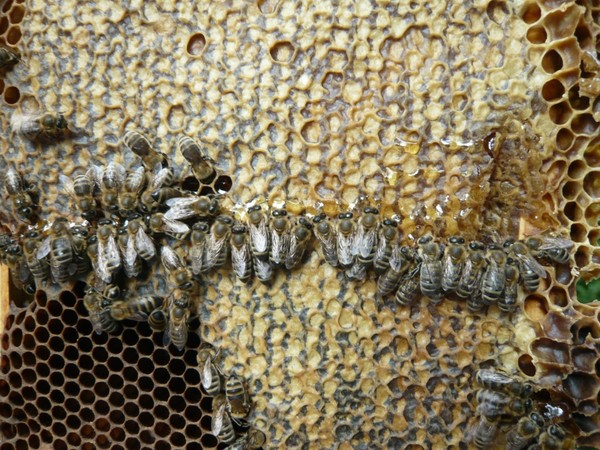One of the lowest bee colony losses in the last few years was recorded by domestic beekeepers last winter. This time, the losses were not caused by the dreaded varroosis. However, due to the colder weather last year, beekeepers struggled with lower honey production. This follows from the results of the 9th year of the COLOSS project: Monitoring the Success of Wintering Bee Colonies, led by scientists from the Palacký University Faculty of Science. Taking part in this survey were 1,154 beekeepers in the Czech Republic.
“Based on the evaluated questionnaires, this year’s bee colony losses in the Czech Republic were estimated at 8.4%, one of the lowest since our monitoring period began. Similar low losses of production bee colonies were recorded in the pilot year 2013/14 and in 2015/16,” commented Jiří Danihlík from the Department of Biochemistry. In the previous year, winter 2020/21, less than 15% of colonies survived the winter.
The highest bee colony losses last winter were recorded by beekeepers in Prague (18.1%) and the Liberec Region (16%); lowest losses were reported in the Hradec Králové region (5.5%). The main causes of bee colony losses were nosemosis, bee starvation, and also zootechnical errors. “Varroosis was probably a minor cause of this year’s losses, the problems were only very local,” Danihlík pointed out.
Nearly half of the beekeepers stated in the survey that the year 2021, like 2020, was marked by low or below-average production. “The production of honey was clearly affected by the weather in the spring months, which was cold and rainy. Many beekeepers had to feed their colonies at a time when they usually collect honey. So far, this year has been very promising in terms of honey production,” said Danihlík.
Danihlík also warned that beekeepers should be on the alert this year after the decline of varroosis last year. “Even with regard to the current weather, there is a risk that parasitic Varroa destructor mites will multiply during the summer. On our website, beekeepers can find instructions and articles on how to effectively prevent varroosis,” he said.
There are about 700,000 bee colonies and 61,000 beekeepers in the Czech Republic. The survey data for the Czech Republic are sent annually to the COLOSS international association and are available at www.coloss.cz.
